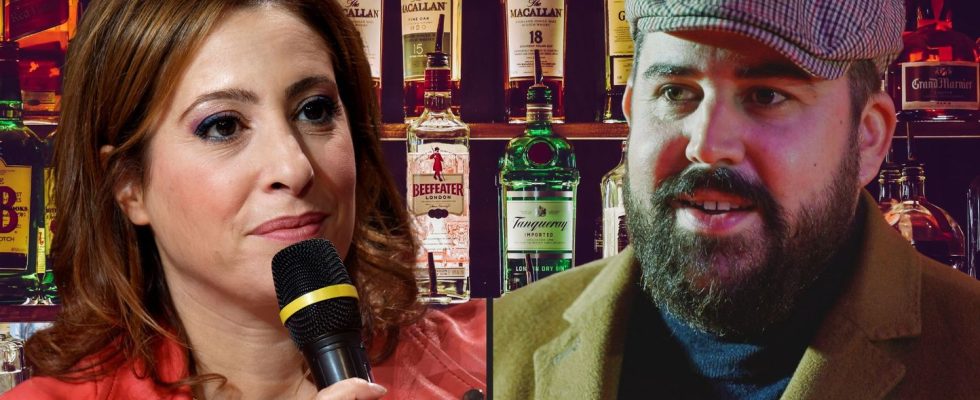“Roh, come on, will you have a little glass of champagne? » Whether it’s grandma Ginette’s birthday, the chef’s farewell party Guillaume, Octave’s wedding or the announcement of the birth of your twelfth third cousin, it is fashionable to toast. And not with water, please, otherwise it “brings bad luck”. This is the very essence of this “small glass” culture to which viewers of What an era! attended Saturday evening.
While the actor and humorist Artus explained on the set of the France 2 show that he had stopped drinking to better manage his anxieties, the journalist Léa Salamé retorted with a smile “Ah, have you become boring? » Before driving the point home: “You are no longer anxious but you are annoying. »
20 minutes decided to look into this “revealing” interaction, thanks to the expertise of Maria Melchior, epidemiologist at the National Institute of Health and Medical Research (Inserm).
But why is stopping drinking “boring”?
Léa Salamé didn’t invent anything. Anyone who abstains from alcohol has already been told that it is “not fun”, “not fun”, or even downright “boring”. However, as Artus notes, “it’s good not to drink alcohol”, while 40,000 people die each year in France because of alcohol consumption, according to Santé Publique France. And again, “this is probably an underestimate”, underlines Maria Melchior who adds that these deaths include “everyday accidents, road deaths” or even “alcohol-related cancers”.
“This controversy is revealing because it shows how stopping drinking is considered abnormal or exceptional when alcohol consumption is considered normal,” explains Maria Melchior, who recalls that 86% of adults consume alcohol in France. And, most importantly, alcohol consumption is associated with “celebration, conviviality and pleasure.” Generally, we chill champagne to celebrate a promotion, not cucumber water. However, this association between the pleasure of being together, celebration and alcohol is all the stronger in France.
Why is it so hard to stop drinking in France?
Despite a drop in alcohol consumption, France remains the 4th most consuming country within the OECD. “Alcohol consumption remains very normalized in France. 10% of French people drink every day. And even if this daily consumption mainly concerns the older generations, it remains particularly anchored in French society,” notes Maria Melchior. “So anchored that we sell Champomy for children to toast [avec quelque chose qui ressemble à de l’alcool] ! », adds the Inserm researcher.
“If I had said that I had stopped doing coke, everyone would have applauded,” Artus said angrily on Saturday evening. Yes, but cocaine is not one of France’s largest economic and cultural sectors. In 2019, France produced 4.2 billion liters of wine, or 17% of global production according to the National Committee of Interprofessions of Wines with Designation of Origin and Geographical Indication (CNIV). France, from its average French people to its politicians, takes care of its (vine) roots. Former Minister of Agriculture Didier Guillaume assured at the beginning of 2019 that “wine is not an alcohol like any other”.
How is this evolving?
“There is very strong economic and political pressure in France. This is obvious when we compare policies to combat alcohol and those against tobacco,” assures Maria Melchior. Difficult for politicians to attack a product that represents France so much. And the French. “In a country where the vast majority of the population drinks, attacking alcohol is not popular,” underlines the Inserm researcher.
While the health authorities are fighting against “binge drinking”, Emmanuel Macron was filmed drinking a beer dry after the Top14 rugby final. A sequence criticized but “profitable” for him because “likeable”, according to political communications expert Philippe Moreau-Chevrolet, interviewed at the time by The Dispatch.
Even today, for many French men and women, there is a +
. But if it is “impossible to tell people not to drink, consumption is decreasing significantly among young people because they want to take care of their health,” notes Maria Melchior. “We are moving towards a reduction in consumption and probably, ultimately, more acceptance for people who do not drink or no longer drink,” she notes. Proof of the evolution of morals, the “first sponsor beer” chosen to sponsor the Olympic Games is alcohol-free…

